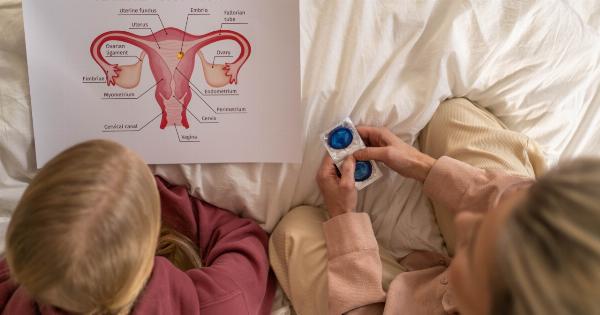Becoming pregnant is a big decision that comes with a lot of responsibility. If you’re not ready to have a baby, there are several ways you can prevent pregnancy. Here are ten effective ways to avoid getting pregnant:.
1. Birth Control Pills
Birth control pills are a popular way to prevent pregnancy. They contain hormones that prevent ovulation, which means that there’s no egg for sperm to fertilize.
The pill is a highly effective form of contraception, but it does require you to take a pill every day at the same time. It can also have side effects like weight gain and changes in mood.
2. Condoms
Condoms are a form of barrier contraception. They prevent sperm from reaching the egg by creating a barrier between the penis and vagina. Condoms are easy to use and highly effective when used correctly.
They also protect against sexually transmitted infections.
3. IUD
An IUD or intrauterine device is a small, T-shaped device that is inserted into the uterus. It can last up to 10 years and is over 99% effective in preventing pregnancy. There are two types of IUDs: hormonal and copper.
Hormonal IUDs release hormones that prevent ovulation, while the copper IUD releases copper that prevents sperm from fertilizing the egg.
4. Implant
An implant is a small, thin rod that is inserted under the skin of the upper arm. It releases hormones that prevent ovulation for up to three years.
The implant is over 99% effective in preventing pregnancy and has the added benefit of being a long-term solution.
5. Depo-Provera Shot
The Depo-Provera shot is an injection of hormones that prevent ovulation. It lasts for three months and is highly effective in preventing pregnancy. However, it can have side effects like weight gain and changes in menstrual cycle.
6. Natural Family Planning
Natural family planning involves tracking your menstrual cycle and abstaining from sex during your fertile window. This method requires a lot of discipline and may not be suitable for everyone.
It’s also not as effective as other forms of contraception.
7. Sterilization
Sterilization is a permanent form of contraception. It involves either getting a tubal ligation (for women) or a vasectomy (for men).
Sterilization is over 99% effective in preventing pregnancy, but it’s a significant decision that can’t be reversed.
8. Emergency Contraception
Emergency contraception, also known as the morning-after pill, is a form of contraception used after unprotected intercourse. It can be taken up to 72 hours after sex and is highly effective in preventing pregnancy.
However, it should not be relied on as a regular form of contraception.
9. Cervical Cap
A cervical cap is a small, silicone cup that is inserted into the vagina to cover the cervix. It prevents sperm from reaching the egg. The cervical cap can be left in for up to 48 hours, and it’s over 90% effective in preventing pregnancy.
10. Sponge
A contraceptive sponge is a small, foam device that is inserted into the vagina before sex. It contains spermicide, which kills sperm on contact. The sponge can be left in for up to 24 hours and is over 80% effective in preventing pregnancy.
Conclusion
There are several effective ways to avoid getting pregnant. The best option for you will depend on your personal preferences and lifestyle. Talk to your healthcare provider to find the right contraceptive method for you.





























